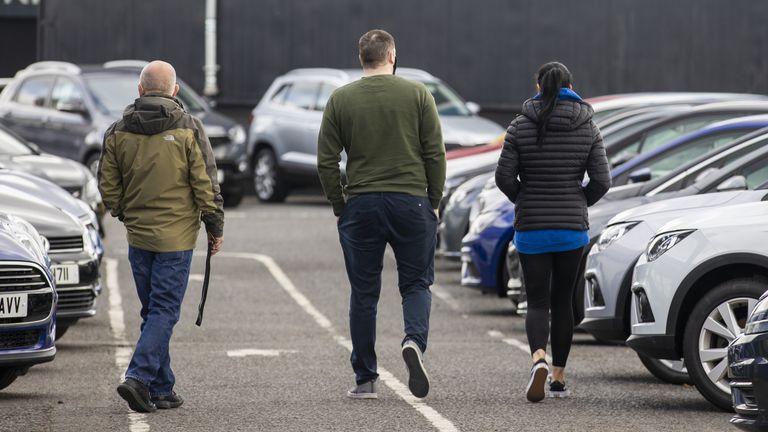New car sales plunged by 34.4% in September as chip shortages inflicted a major setback on what is normally a key month for the sector, according to industry data.
Just 215,312 new vehicles were registered, the weakest for the month since the “two-plate” system for new cars was introduced in 1999, said the Society of Motor Manufacturers’ and Traders (SMMT).
The SMMT said that supply issues caused by semiconductor chip shortages “continue to plague the industry”.
PS5s, Xbox and gadgets in short supplyHowever, it pointed to the best monthly performance for battery electric vehicles as reason for optimism.
The two-plate system, under which cars are sold with new registration plates twice each year – in March and September – normally boosts demand in each of those months.
AdvertisementBut the coronavirus crisis has buckled the market’s usual seasonal trading patterns out of shape, thanks to factory shutdowns and showroom closures last year.
In September 2020, sales were still struggling to recover and hit a post-1999 low of just over 328,000 new registrations.
More from BusinessThe chip shortage means that they have now fallen sharply even from those levels.
That is because even as restrictions on UK consumers and industry are eased, the pandemic has resulted in shutdowns of dozens of plants in countries such as Vietnam, Taiwan, and Malaysia, where the chips vital for car production are produced.
The SMMT has estimated that the shortage will result in an overall reduction of 100,000 in new vehicles being made in the UK.
‘Challenges with chips’ for online electricals retailer AOThe issue was laid bare in a trading update from Melrose which supplies parts to carmakers across Europe.
The owner of GKN told investors on Tuesday that automotive clients were cancelling orders at 25 times the rate seen earlier this year because the chip shortage was hampering production levels.
The production crisis has also contributed to a sharp rise in used car prices as the second hand car market takes up the slack with demand also outstripping supply.
One bright spot in the latest car sales figures was the registration of a record 32,721 battery electric vehicles, compared with 37,850 for the whole of the pre-pandemic year of 2019.
New petrol and diesel vehicles will be banned from sale from 2030.
SMMT chief executive Mike Hawes told Sky’s Ian King Live that he expected the effects of the chip shortage to be felt globally for the foreseeable future.
Chief exec of UK car industry body the SMMT, Mike Hawes, explains how the COVID crisis is affecting vehicle production globally.He said of the overall UK new car sales performance: “This is a desperately disappointing September and further evidence of the ongoing impact of the COVID pandemic on the sector.
“Despite strong demand for new vehicles over the summer, three successive months have been hit by stalled supply due to reduced semiconductor availability, especially from Asia.
“Nevertheless, manufacturers are taking every measure possible to maintain deliveries and customers can expect attractive offers on a range of new vehicles.”
